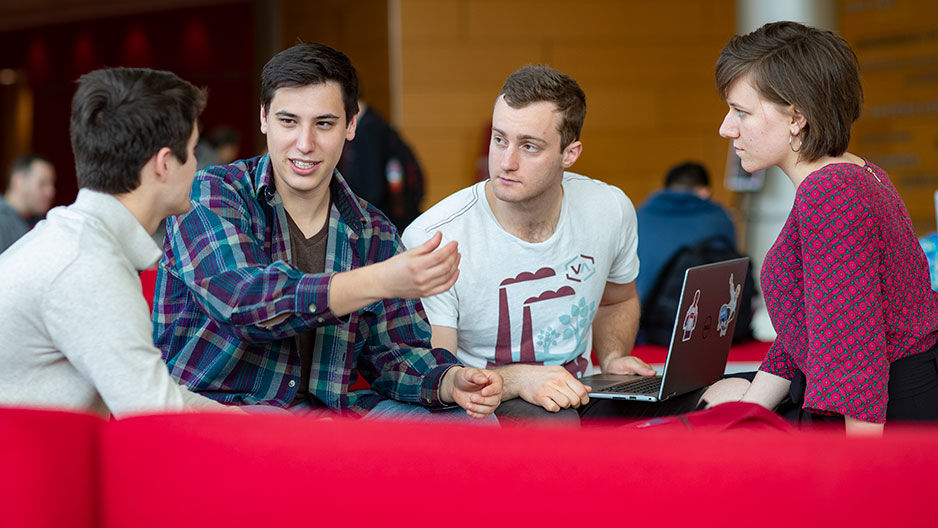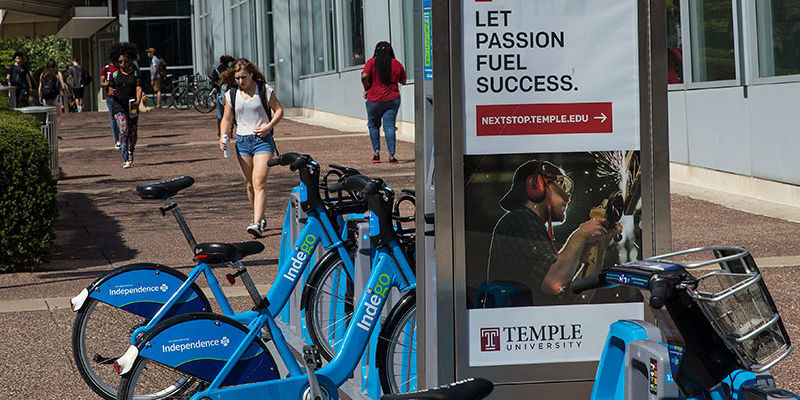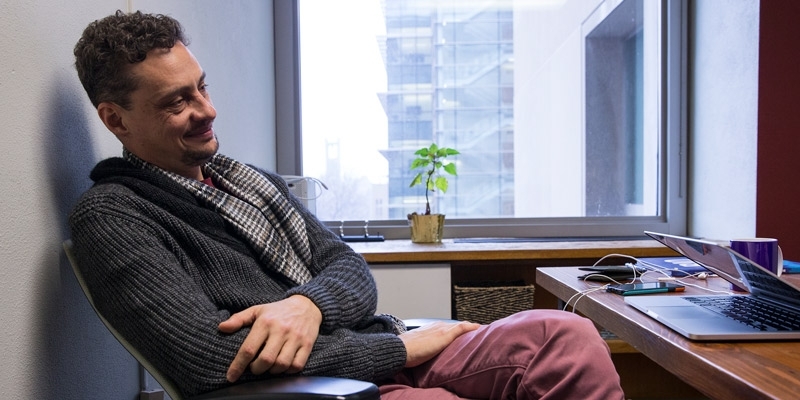Engineers, public health join to improve health outcomes in Peru
An ongoing clean-water project launched by Temple’s Engineers Without Borders chapter in 2016 in Saccha, Peru is now working with Public Health Without Borders to increase impact.

For Temple’s Engineers Without Borders chapter, an ongoing clean-water project in Peru offers students the opportunity of a lifetime: a chance to travel internationally and make a real-world impact while doing so.
For the people in the Peruvian mountainside village of Saccha, the project has meant a significant change in their day-to-day lives. As a result of the project, the residents now have access to cleaner drinking water in their homes—a daily necessity that proved to be cost- and time-prohibitive for many of them before 2016, when Temple engineering students began their work constructing a pipe system to deliver the water.
“Before, they were just drinking completely untreated water,” explained Andrew Bertolazzi, a senior civil and environmental engineering major and vice president of Temple’s Engineers Without Borders chapter. “Half of the community was not boiling water [as a safety precaution]. It was too expensive to use the fuel it required and too time-consuming.”
Bertolazzi was among a group of students who traveled to Peru in January to continue the work started in Saccha by earlier cohorts of Engineers Without Borders students. Now, the Temple Engineers group is joining forces with another organization—Public Health Without Borders—to increase their impact on public health in the area and make it last.
Assistant Professor Graciela Jaschek, of the College of Public Health’s Department of Epidemiology and Biostatistics, is spearheading the public health arm of the organization at Temple. She traveled to Peru last year with the engineers group and began to lay the groundwork for public health projects in the community.
“I am so excited about our emerging partnership,” said Jaschek, who led a similar student group at the University of Maryland. “Soon, Public Health Without Borders students will travel to Peru and other countries to build this global health program.”
Jaschek’s plans for Public Health Without Borders’ projects to launch near where Temple Engineers Without Borders have already been working include nutrition interventions across 18 communities in partnership with the regional health center located in Otuzco, Peru, and a program for local high schools to encourage family communication and physical activity.
Thus far, the Engineers Without Borders clean-water project has successfully installed a system of roughly 1,800 meters of PVC pipes that deliver clean spring water directly into the 15 homes that make up the small village of Saccha, so people can access it via taps. When the group visits again this summer, they plan to install a system that will chlorinate the water to make it even safer for drinking.
“It’s such a unique opportunity to be able to travel somewhere like Peru and do something for people,” said Sam Stead, a senior engineering technology major and project lead for Engineers Without Borders. “I saw this as a good opportunity to develop my engineering skills, but also as a way to help people. We’re helping provide them with a resource that everyone needs.”
The Engineers Without Borders students have continued to work on and plan for the Peru project during their time back on campus at Temple, including conducting calls with contacts back in Peru and developing plans along with other chapter members who haven’t been on the international trips, but have still played a critical role.
Emma Krampe, a junior civil and environmental engineering major and president of Temple’s Engineers Without Borders chapter, said that although she personally hasn’t been on any trips to Peru, the experience of participating in the project has been invaluable to her and her fellow students. She noted that a key part of the organizations’ work has been to work alongside residents of the international communities to design and develop projects that suit them and meet their needs.
“It’s really wonderful to be able to participate in a project that affects other parts of the world in a responsible and culturally appropriate way,” said Krampe. “It’s special that our international service work can put the project in the community’s hands and provide an end project that’s really important for basic human needs.”
Learn more about Temple’s Engineers Without Borders chapter, get involved or support their projects by visiting its website or Facebook page.
—Morgan Zalot

